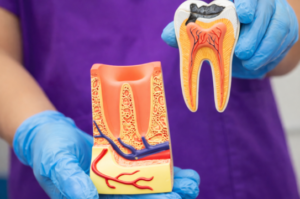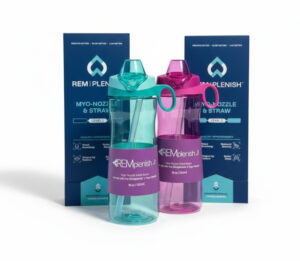Patient’s Guide to Vitamin D and Vitamin K for Dentistry
At Optimal Dental Health, we understand the critical role that nutrition plays in maintaining strong teeth and healthy gums. Vitamin D and vitamin K are essential nutrients for oral health, working together to strengthen teeth, support gum health, and promote overall wellness. If you live in London, where sunlight exposure is limited, optimizing your intake of these vitamins is particularly important.
This guide explains the importance of Vitamin D and Vitamin K, their optimal levels, the benefits of supplementation, and the best natural food sources to include in your diet.
The Role of Vitamin D in Dental Health
Vitamin D is essential for absorbing calcium and phosphorus, two minerals critical for maintaining strong teeth and bones. A deficiency in vitamin D can lead to weakened enamel, gum disease, and an increased risk of tooth decay.
Benefits of Vitamin D for Oral Health:
- Promotes Strong Teeth: Helps absorb calcium and phosphorus, strengthening enamel.
- Reduces chance of tooth decay: a 2020 study revealed that children who were given a daily vitamin D supplement developed 47 percent fewer cavities than a group of children who were not provided this supplement.
- Reduces Gum Disease Risk: Supports the immune system in combating gum inflammation.
- Enhances Healing: Aids in the recovery of damaged oral tissues. Especially important in the integration stages of Dental Implants.
Optimal Vitamin D Levels:
The optimal serum 25(OH)D level for overall and oral health is around 100 nmol/L, significantly higher than the NHS recommendation of 50 nmol/L.
Supplementation Guidelines:
- For most adults, a daily intake of 2,000–4,000 IU of vitamin D3 is recommended.
- Living in London, where sunlight is scarce, supplementation is often necessary year-round.
- Recheck your levels after three months of supplementation to ensure they are within the optimal range.
Natural Food Sources of Vitamin D:
- Fatty fish (salmon, mackerel, sardines)
- Egg yolks
- Fortified foods (cereals, orange juice, and plant-based milk)
- Cod liver oil
The Role of Vitamin K in Dental Health
Vitamin K works synergistically with vitamin D to ensure calcium is effectively used in the body, directing it to the bones and teeth while preventing it from depositing in soft tissues.
Benefits of Vitamin K for Oral Health:
- Strengthens Teeth and Jawbone: Activates osteocalcin, a protein that binds calcium to bone.
- Prevents Cavities: Enhances enamel remineralization.
- Supports Gum Health: Reduces inflammation and promotes healing.
Types of Vitamin K:
- Vitamin K1 (Phylloquinone): Found in leafy greens; supports blood clotting.
- Vitamin K2 (Menaquinone): Found in fermented foods and animal products; essential for calcium metabolism.
Optimal Vitamin K Intake:
- Aim for 100–200 mcg of vitamin K2 (MK-7) per day.
Natural Food Sources of Vitamin K:
- Vitamin K1: Spinach, kale, broccoli, and other leafy greens.
- Vitamin K2: Natto (fermented soybeans), cheese, egg yolks, and grass-fed butter.
Why Londoners Should Supplement
Due to limited sunlight and dietary challenges, many Londoners struggle to maintain adequate levels of vitamin D and K. Supplementation with a combined vitamin D3 and K2 formula is often the best solution, ensuring these vitamins work together to optimize calcium use in the body.
Rechecking and Monitoring Levels
To ensure optimal health benefits, it’s important to retest your vitamin D levels after three months of supplementation. Adjust your intake as needed to maintain serum 25(OH)D levels around 100 nmol/L.
Choosing the Right Supplement
For best results, select a combined supplement with the following:
- Vitamin D3: 2,000–4,000 IU per day.
- Vitamin K2 (MK-7): 100–200 mcg per day in an oil-based formula for better absorption.
By optimizing your intake of vitamin D and vitamin K, you can strengthen your teeth and gums while supporting your overall health.
For personalized guidance, testing, and supplementation advice, contact us on tel:0203 921 1000 today



